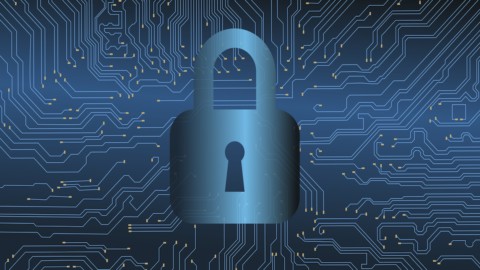The sumptuous Apple buybacks (90 billion dollars, just to arouse the envy of Giancarlo Giorgetti who is working hard to raise 7 billion euros to extend the tax wedge until December) closes the cycle of US technology quarterly, the winning sector especially in the face of the problems of the US banks and the uncertainties on inflation. The rescue of Big Tech passes through AI: is it a danger or not?
The revenge of the big names in Silicon Valley and the new wave of artificial intelligence
The big names in Silicon Valley have taken a resounding revenge on the banks, stressed by the crisis of American regional institutions, the main financial lung for small and medium-sized enterprises as well as for real estate, considered today to face risk after the collapses of the banks that lent money to wealthy clients at rates that are now laughable. Entirely different music for the big names in Silicon Valley, already in great difficulty due to the increase in the cost of money. Conversely, by Mark Zuckerberg's Meta to Jeff Bezos of Amazon, the giants of the Web have anticipated: since last December there have been at least 120 white-collar workers left at home by the big names who have also defended, if not increased, their turnover, perhaps by hunting for new markets, as Apple Lossless Audio CODEC (ALAC), determined to repeat the formidable penetration of the Chinese market in India. But market strategies and savings only minimally explain the new wave of innovation which promises to invest the markets, the structures of the economy and the same political and social balances at almost all latitudes. Kind of like what happened when the Internet took off. Or maybe even more, given the expectations and fears triggered by theArtificial intelligence.
Microsoft and Chat Gpt move the White House
To confirm the weight of the novelty, suffice it to say that, just over a month after the launch of Chat Gpt by Microsoft, Artificial Intelligence has conquered both the attention of the White House that of the European Union. Yesterday the vice president Kamala Harris (seeking visibility in view of the electoral campaign) hosted the leaders of Google, Microsoft and Open AI to ask for their collaboration in view of the creation of a system of rules for the system. “You have enormous power – President Joe Biden said to the CEOs – but even greater responsibilities”. Hence the launch of a public research center with a budget of 140 million dollars to monitor the developments of the system from an ethical point of view and the impact on employment. At the end of August, then, the large groups active in AI will have to undergo a public scrutiny of their products at a statewide cybersecurity conference.
Artificial Intelligence Alarm: Brussels is also on the move
Brussels will also enter the field with new rules which will be discussed next week. China is also moving in its own way. In this case, the political impact of Artificial Intelligence, already abundantly used by the regime for repressive purposes, is certainly not in question. But the Communist Party does not underestimate the impact of Artificial Intelligence on the growth of the economy to the detriment of bureaucracies.
Artificial intelligence: what is it for? And why is it a danger?
Artificial intelligence is the ability of a machine to display human capabilities such as reasoning, learning, planning and creativity. It therefore allows machines and systems to understand their environment, relate to what they perceive, solve problems, and act towards a specific goal. The computer receives inputs (either pre-prepared or collected via sensors, such as a video camera), processes them using advanced computational capabilities, and responds. The AI is capable of adapting its behavior by analyzing the effects of previous actions and working autonomously.
Some of the areas where AI finds its greatest application are: solutions for analyzing and extracting information from data, especially for making forecasts. Think of areas like business planning, investment management, and budgeting. The area of interpretation of language, written or spoken, is also very important, the so-called Language IA to which we can refer NLP and Chatbot. A system that works. Even too much, admitted one of the fathers of the system, that is Geoffrey Hinton who has resigned from Google to raise the alarm on the effects of the large-scale application of AI. Starting with the effects on employment. To limit ourselves to what is happening these days, it is impressive IBM's decision to give up 8 jobs because Chat Gpt does the job better and sooner. Meanwhile, for the first time in 15 years, Hollywood screenwriters are on strike to defend the creativity of the authors, threatened by the scripts made via Ai. But is it possible to replace an author with software? “The studios can order a first draft of a detective story or a mystery from the machine – replies Warren Leight, an NBC author – Then the raw material will be developed at a much more modest cost by a human being. No, I don't think Artificial Intelligence can make Citizen Kane, but reduce creativity to a low-cost assembly line Yes".
AI is a danger to business and politics. But not everyone agrees
In short, this time the white-collar workers are at greater risk. But the threat to jobs is certainly not the most serious danger. Israeli historian Yuval Harir writes in the Economist. "Think about the next US presidential race in 2024 and try to imagine the impact of artificial intelligence tools built to mass-produce political content, fake news and sacred scriptures for new cults". According to Harari, the extra weapon of the new artificial intelligence systems is their ability to seduce us.
Not all scholars agree with the alarm. Starting from Bengio Lecunn, another father of research awarded with the Turing Price, the Nobel of computer science. To follow the opinion of Paul Benanti professor of Bioethics and ethics of technologies at the Pontifical Gregorian University: ethicist, theologian, philosopher, but also passionate about technology and former engineering student. “Historia magistra vitae,” he says. “At the end of the 800th century, synthetic dyes were discovered, the production of drugs was born from chemistry and in the same week, aspirin and heroin were discovered, which at the beginning was marketed as the perfect drug. After a while we realized that it was addictive: it's the Greek pharmakon, which in Greek means both medicine and poison. I fear the great generative language models, Llm, is an equivalent of that season. That to cure a few headaches we could cry many lives. Gpt is the chemical molecule, the one that makes the thing work; ChatGpt is the drug they are marketing it under. But it is Gpt, i.e. industrial use, that we need to look at”.
Without prejudice, for better or for worse. But one thing is certain: after so many attempts (from the metaverse to driverless driving) the new economy has found the heir of the Internet and the smartphone, capable of upsetting the markets. Indeed, our view.




